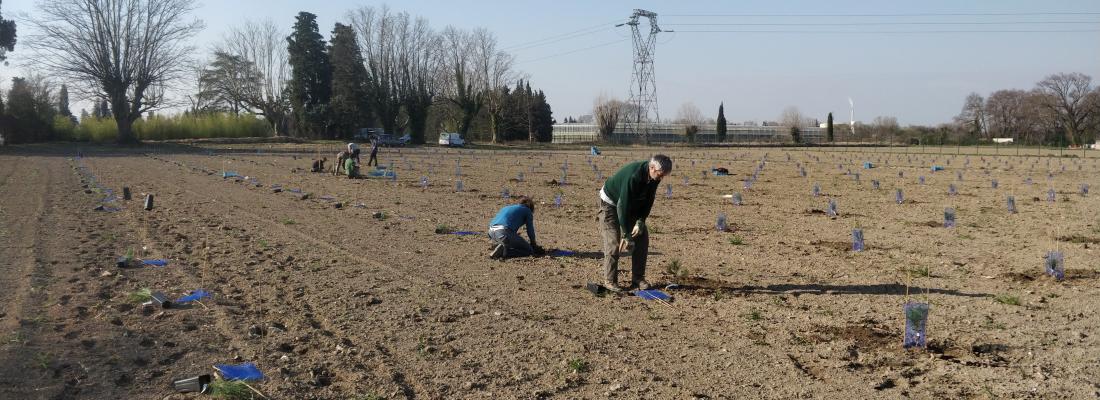Biodiversity Reading time 3 min
A forest genetic resources collection is currently being established in Avignon
Published on 15 March 2022

For INRAE, and for the scientific community in general, this plantation will represent the first genetic resource collection in Europe for two major Mediterranean pine species, Pinus halepensis (Aleppo pine) and Pinus brutia (also known as Turkish pine).
The Saignonne site in Avignon is one of 6 catchments that supply the Greater Avignon area with drinking water. Water distributed to households is taken from the aquifer through a series of wells that form a catchment zone. In 2021, researchers came up with the idea of reforesting part of the site, developing a long-term management plan, and studying the possibility of establishing INRAE's forest genetic resource collection on this site, taking into account the layout of the water plant facilities.
Conserving, preserving and enhancing biodiversity
In order to preserve, share and promote genetic resources and heritage, a RARe research infrastructure was created in 2015. This RARe—which stands for Agricultural Resources for Research—offers stakeholders, and their partners, access to animal, plant, and microbial resources, which are carefully controlled and conserved in these collections.
A key component of the project is centred on the trees. The INRAE Provence-Alpes-Côte d'Azur centre and its Mediterranean Forest Ecology Unit in Avignon are taking part in this project with species native to the Mediterranean region, such as cypress, pine, cedar, fir, etc. In this context, INRAE and its RARe partners are looking for sites suitable for housing these collections.
The Saignonne genetic collection of Mediterranean pine: a shared resource
The creation of a genetic collection of Mediterranean pines on the perimeter of Saignonne offers a number of advantages to the catchment area:
- soil protection and permanent natural land use
- filtration of possible pollutants or excess nitrogen
- better carbon fixation capacity
- plant coherence: a small part of the Saignonne area is already planted with Aleppo pines.
For researchers, the main benefits are:
- establishing and maintaining the biodiversity of forest resources. The plant material has been chosen from progeny derived from controlled pollination, within and across the selected species.
- matching the site's soils to the ecological needs of the selected pines and preserving the site.
Key figures
- 1.3 hectares on the western section of the site
- Planting 600 trees in 2022 and 150 trees in 2023
- Species: Aleppo pine & brutia pine
- Distance between plants: 4.7 x 3 m, i.e., a lower density than a forest in order to ensure the long-term conservation of every specimen.
